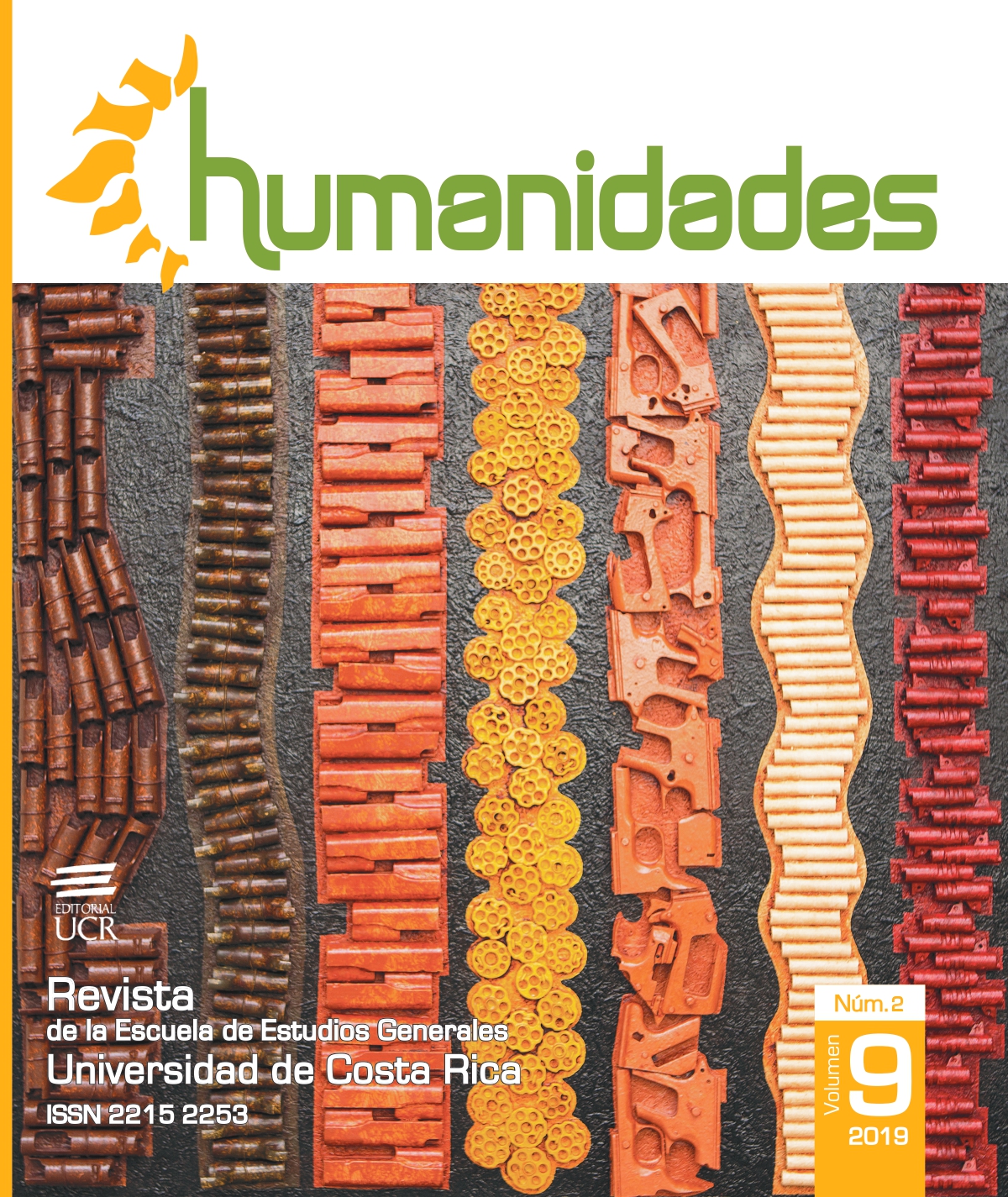Abstract
Based on the etymology of truth (ἀλήθεια) that Heidegger (1986) does in Sein und Zeit (Being and Time), and taking into account some everyday characterizations that Berger and Luckmann do (1998), I hypothesize that art is an ontological fissure in everyday life. If truth (ἀλήθεια), as Heidegger states, literally means in classical Greek “unconcealment” (the initial alpha of the word is privative: ἀ-λήθεια), what would be the “unconcealment” that art does, since art as well is posed as true in Heidegger? Furthermore, I explore the poetic, which not only refers to the poetic in literature, but also to the most general meaning of poiesis (ποίησις) which means “creation.” Finally, the question inevitably arises as to whether art without beauty or sublimity is possible, or whether beauty is inherent to art. In this part of the article, I review, in very general lines, some theses by Arthur Danto.
References
Barthes, R. (1970). L´empire des signes. Ginebra: Éditions Albert Skira.
Barthes, R. (1986). Lo obvio y lo obtuso. Imágenes, gestos, voces. Barcelona: Paidós.
Bauman, Z. (2006). Modernidad líquida. México: Fondo de Cultura Económica.
Berger, P. L., y Luckmann, T. (1998). La construcción de la realidad social. Buenos Aires: Amorrortu.
Borges, J. L. (1980). Siete Noches. Buenos Aires: Fondo de Cultura Económica.
Dante, A. (1973). Comedia. Infierno (Trad. Á. Crespo). Barcelona: Seix Barral.
Danto, A. (2005). El abuso de la belleza. Barcelona: Paidós.
Eco, U. (1978a). La estructura ausente. Barcelona: Editorial Lumen.
Eco, U. (1978b). Tratado de semiótica general. México: Lumen.
Eliade, M. (1967). Lo sagrado y lo profano. Madrid: Ediciones Guadarrama.
Erté. (1940). Abecedario [Ilustración]. Recuperado de http://arteac.es/erteromain-de-tirtoff/
Foucault, M. (1970). La arqueología del saber. México: Siglo XXI.
Frankfort, H., Frankfort, H. A., Wilson, J. A., y Jacobsen, T. (1993). El pensamiento prefilosófico. México: Fondo de Cultura Económica.
Hegel, F. (1966). Fenomenología del espíritu (Trad. W. Roces). México: Fondo de Cultura Económica.
Hegel, F. (1970). Phänomelogie des Geistes. Baden-Baden: Suhrkamp.
Heidegger, M. (1960). Sendas perdidas (Trad. J. Rovira Armengol). Buenos Aires: Losada.
Heidegger, M. (1966). Introducción a la metafísica (Trad. E. Estiú). Buenos Aires: Nova.
Heidegger, M. (1976). Einfürung in die Metaphysik. Tübingen: Max Niemayer Verlag.
Heidegger, M. (1986). Sein und Zeit. Tübingen: Max Niemayer Verlag.
Heidegger, M. (2002). El ser y el tiempo (Trad. J. Gaos). México: Fondo de Cultura Económica.
Heidegger, M. (2003). Holzwege. Frankfurt am Mein: Vittorio Klostermann.
Jakobson, R. (1984). Ensayos de lingüística general. Barcelona: Ariel.
Kant, I. (1972). Lo bello y lo sublime. La paz perpetua. Madrid: Espasa Calpe.
Kristeva, J. (1978). Semiótica 1 y 2. Madrid: Editorial Fundamentos.
Lewandowski, T. (1986). Diccionario de lingüística. Madrid: Cátedra.
Mandoki, K. (2013). El indispensable exceso de la estética. México: Siglo XXI.
Milner, M. (1978). Introduction. En C. Baudelaire, Les fleurs du mal (p. 36). Paris: Imprimerie Nationale.
Mora, F. (2001). Diccionario de filosofía. Barcelona: Ariel.
Morin, E. (2001). Amor, poesía, sabiduría. Madrid: Seix Barral.
Mounin, G. (1979). Lingüística y filosofía. Madrid: Gredos.
Nietzsche, F. W. (1967). El origen de la tragedia (Trad. E. Ovejero y Maury). Buenos Aires: Aguilar.
Stearn, G. E. (1967). McLuhan: caliente y frío. Buenos Aires: Sudamericana.
Rulfo, J. (1984). Pedro Páramo. México: Fondo de Cultura Económica.
Van Gogh, V. (1886). Shoes [Pintura]. Amsterdam, Museo van Gogh. Recuperado de internet.
Wittgenstein, L. (1959). Tractatus logico-philosophicus. Oxford: Suhrkamp.
Wittgenstein, L. (1972). Tractatus logico-philosophicus (Trad. P. Klossowski). Francia: Gallimard.
Wittgenstein, L. (2010). Tractatus logico-philosophicus (Trad. J. Muñoz & I. Reguera). Madrid: Alianza Editorial.


